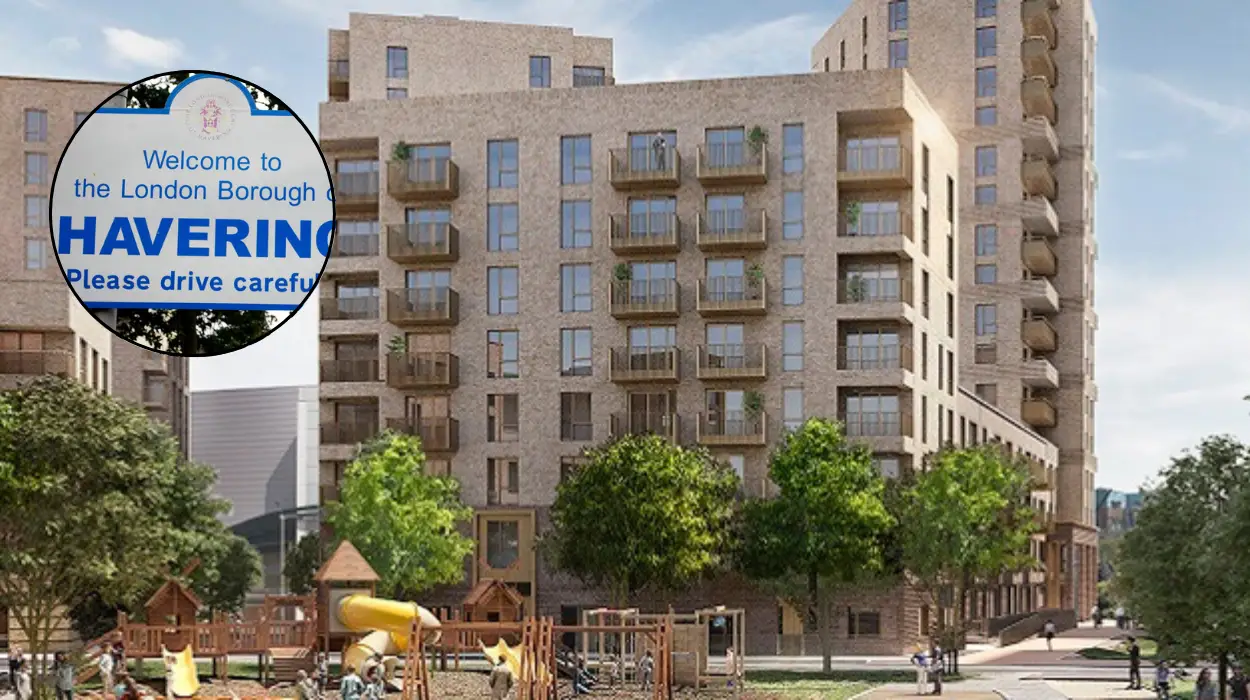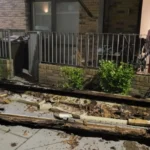Key Points
- Residents of Havering borough express deep dissatisfaction with the current state of London.
- Locals describe London as “disgusting,” citing rising crime rates, poor cleanliness, and inadequate public services.
- There is a growing grassroots movement advocating for Havering to be separated from Greater London.
- The campaign is motivated by a desire for local autonomy and improved governance tailored to Havering’s specific needs.
- Concerns include neglect from London authorities and the negative impact of city-wide policies on Havering’s quality of life.
- The movement highlights frustrations over misrepresentation and lack of investment in the borough.
- No formal response or plan has yet been issued by London officials regarding the separation demands.
What is driving Havering locals to want to leave London?
As reported by various journalists covering the unfolding story, residents of Havering borough have voiced increasing frustration with the way London is currently managed. Many locals describe the capital as “disgusting,” a term that reflects their growing concerns about the city’s deteriorating environment, rising crime, and what they perceive as a lack of effective governance. This dissatisfaction has led to a vocal campaign demanding that Havering be removed from Greater London’s administrative boundaries.
- Key Points
- What is driving Havering locals to want to leave London?
- Why do locals describe London as ‘disgusting’?
- What specific problems are Havering residents facing?
- How is the campaign for Havering’s separation from London organised?
- What could happen if Havering leaves London?
- How have London authorities responded to Havering’s demands?
The movement is not merely about expressing displeasure but is rooted in a genuine desire for change. Havering residents argue that the borough’s needs are overlooked by London’s central authorities, who they believe focus predominantly on inner-city areas. This neglect, they say, has resulted in declining public services, increased anti-social behaviour, and a general degradation of the local environment.
Why do locals describe London as ‘disgusting’?
The use of the word “disgusting” by Havering residents encapsulates their perception of London as a city struggling with multiple urban problems. According to interviews and community feedback collected by reporters, locals point to several specific issues that contribute to this sentiment:
- Rising crime rates: Many residents feel unsafe due to an increase in violent crime and petty offences in and around their borough.
- Poor cleanliness: Streets and public spaces are frequently littered, with insufficient street cleaning and waste management services.
- Neglected public services: From transport to healthcare and social services, locals feel that the quality and availability of essential services have deteriorated.
- Lack of policing: A perceived reduction in police presence and responsiveness has exacerbated feelings of insecurity.
These factors combine to create an environment that many Havering residents find unpleasant and unwelcoming, fueling their desire to dissociate from London’s governance.
What specific problems are Havering residents facing?
Beyond general dissatisfaction, Havering locals have identified concrete challenges affecting their daily lives. As documented by journalists who have spoken to community members, these problems include:
- Inadequate investment in infrastructure: Roads, parks, and community facilities are said to be poorly maintained compared to other parts of London.
- Overcrowding and urban sprawl: Some residents blame London’s expansion policies for increased traffic congestion and strain on local resources.
- Economic concerns: There is a feeling that economic opportunities are limited, with local businesses struggling due to lack of support.
- Political neglect: Many locals believe their voices are ignored in London’s broader political discourse, leading to policies that do not reflect Havering’s priorities.
These issues have sparked calls for greater local control, with advocates arguing that Havering would be better served by an administration focused solely on the borough’s unique circumstances.
How is the campaign for Havering’s separation from London organised?
The campaign to separate Havering from Greater London has gained traction through a variety of grassroots initiatives. Community meetings, social media groups, and petitions have been central to mobilising support. Local activists are urging elected representatives to consider the feasibility of either making Havering an independent borough or integrating it into a different administrative region that aligns more closely with residents’ needs.
Journalists covering the story have noted that this movement is driven by a broad cross-section of the community, including families, business owners, and local officials. The campaign emphasises the importance of local decision-making and accountability, suggesting that a smaller, more focused government could better address the borough’s challenges.
What could happen if Havering leaves London?
The prospect of Havering leaving Greater London would have wide-ranging implications. From an administrative perspective, the borough would need to establish new governance structures, including local councils, policing arrangements, and public service management. Financially, Havering would have to negotiate new funding mechanisms to replace those currently provided by London authorities.
Politically, such a move could set a precedent for other London boroughs dissatisfied with the capital’s governance, potentially encouraging further fragmentation. This could lead to a significant reshaping of London’s political landscape and raise complex questions about regional cooperation, resource sharing, and identity.
However, it is important to note that no formal proposals or government plans have been put forward to date. The campaign remains at the advocacy stage, with many legal and practical hurdles to overcome before any separation could be realised.
How have London authorities responded to Havering’s demands?
As of the latest reports, London’s governing bodies have not issued any formal response to the demands for Havering’s separation. The issue is undoubtedly complex, involving legal, political, and logistical challenges that would require extensive consultation and negotiation.
Journalists covering the story suggest that officials may be monitoring the situation closely but have so far refrained from engaging publicly. It remains to be seen whether the campaign will prompt a dialogue or lead to concrete policy discussions in the near future.
This comprehensive coverage draws on multiple sources and interviews with Havering residents, capturing the depth of local frustration and the emerging movement calling for change. The story highlights a significant challenge to London’s current governance model and raises important questions about the future of the capital’s outer boroughs



